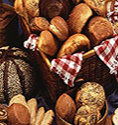Blood flow and circulation is a condition determined by physiological and metabolic processes. Physcial activity and regular excercise and the type of food one consumes are known to affect blood flow and circulation and as a result, directly or indirectly, health conditions such as cardiovascular disease, blood pressure and erectile dysfunction.
Blood flow and circulation is partly influenced by the extent of relaxation of blood vessels (vasodilation). Vasodilation is greatly affected by nitric oxide level in the endothelial tissues. Hence, increasing nitric oxide level is known to improve blood flow.
The availability and activity of nitric oxide in the body is to great extent dependent on the type of foods we consume and physical excercise. Arginine rich foods such as sesame, peanut, and mollusks, for example, supply the body L-arginine, which is the precursor for nitric oxide synthesis. Herbs such as ginseng, ginger and garlic also contain chemicals that stimulate nitric oxide synthesis.
Some food types are rich in antioxidants such such as flavonoids. Antioxidants reduce the breakdown of nitric oxide. Besides flavonoid antioxidants especially flavanols also increase nitric oxide level in the blood vessel tissues. Therefore flavonoid rich foods, such as chocolate, tea and wine, improve blood flow.
Foods high in omega 3 fatty acids also increase nitric oxide synthesis and contribute to increased blood flow.
References:
Davide Grassi, Annalisa Aggio, Luciano Onori, Giuseppe Croce, Sergio Tiberti, Claudio Ferri, Livia Ferri and Giovambattista Desider (2008). Tea, Flavonoids, and Nitric Oxide-Mediated Vascular Reactivity. J. Nutr. 138:1554S-1560S.
David R. Meldrum, Joseph C. Gambone, Marge A. Morris, and Louis J. Ignarro (2010). A multifaceted approach to maximize erectile function and vascular health. Fertility and Sterility, 94(7): 2414-2520.
Lee Hooper, Paul A Kroon, Eric B Rimm, Jeffrey S Cohn, Ian Harvey, Kathryn A Le Cornu, Jonathan J Ryder, Wendy L.Hall and Aedín Cassidy (2008). Flavonoids, flavonoid-rich foods, and cardiovascular risk: a meta-analysis of randomized controlled trials. American Journal of Clinical Nutrition, 88(1): 38-50.



